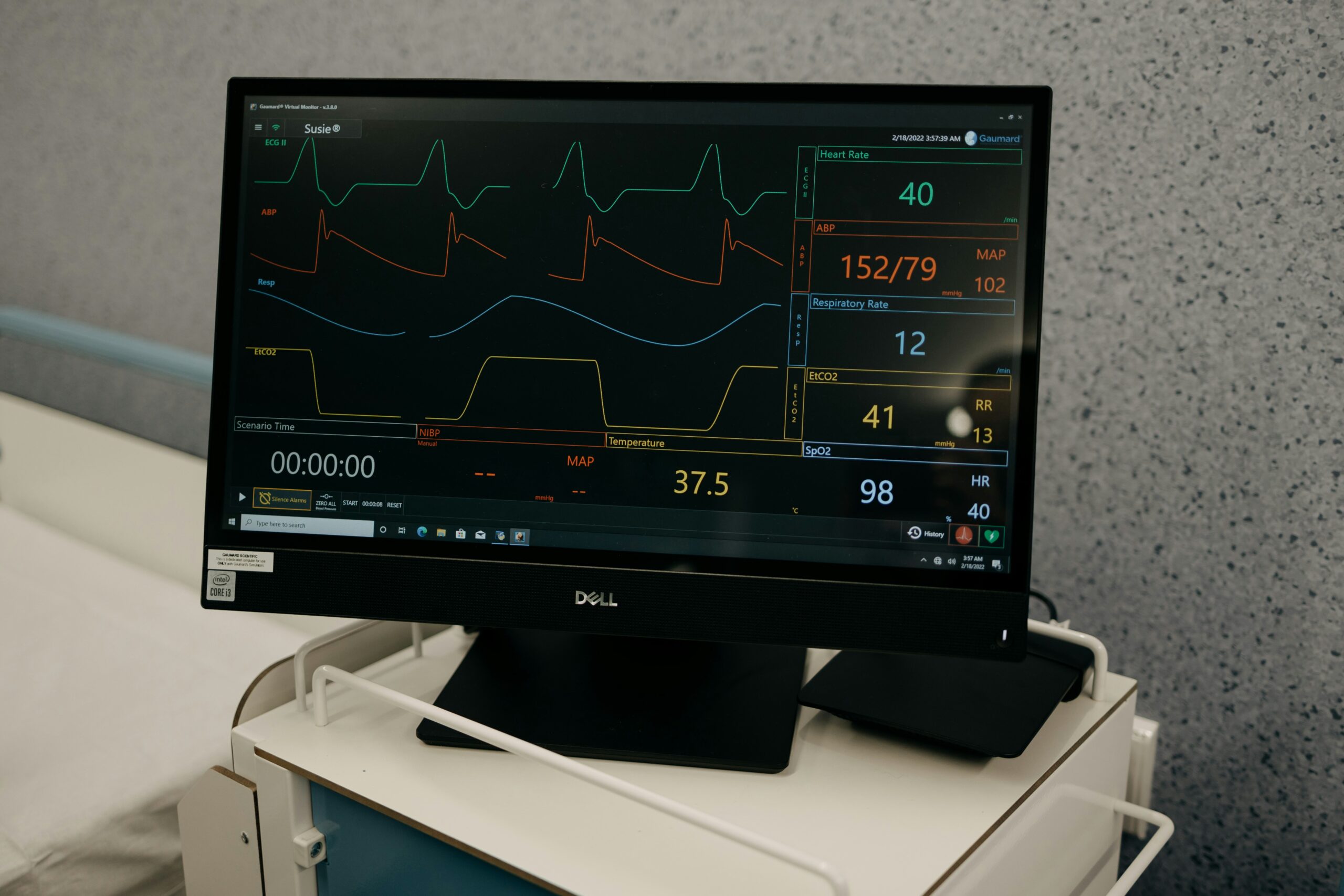Heart disease is the leading cause of death in the world. It is crucial to make heart-healthy food choices to reduce your risk of heart disease. This blog post will discuss the best heart-healthy foods to add to your diet. We will also talk about the effects of diet and nutrition on heart health and what products to avoid. Finally, we will discuss the benefits of heart-healthy foods and list recommended products!

Diet and nutrition effects on heart health
Can the contents of your plate save your life? Strange as it may sound, the answer is ‘yes’: nutrition plays a significant role in preventing heart diseases. Almost 70% of cardiac problems could be avoided by choosing the proper diet and giving up food harmful to the heart.
Heart healthy eating
The main goal of a healthy diet is to provide the body with all the necessary nutrients for normal functioning and disease prevention. The body should be supplied with nutrients in sufficient and well-balanced quantities.
A heart-healthy diet is low in saturated fat and cholesterol and includes plenty of fruits, vegetables, and whole grains. Each main meal should contain proteins, fats, and carbohydrates. A perfectly balanced plate with the foods containing these nutrients would look like this:
- 1/2 vegetables,
- 1/4 protein products (poultry, red meat, eggs, sea fish, cottage cheese, legumes),
- 1/4 carbohydrates (grains, pasta, potatoes)
How much you eat is just as important as what you eat. Regular overeating is a path to obesity, which is the shortest way to heart muscle disorders and blockage of blood vessels.
Products to avoid
Saturated fat
It’s essential to avoid foods that are high in saturated fat, such as fatty meats, butter, and cheese, because they can raise blood cholesterol levels and heart attack risk. They also can cause high blood pressure. Overeating saturated fat can cause your heart to work harder to pump blood through your body. Over time, this can damage your heart muscle and increase your risk for heart failure. Saturated fats are one of the leading dietary causes of heart disease.
Sugar
It’s also important to avoid foods high in sugar, such as candy and soda, because they can increase your risk of heart disease. When you eat foods high in sugar, your body releases insulin to absorb the sugar. Insulin causes the body to store excess sugar as fat. Over time, this extra fat can clog arteries and lead to heart attacks and strokes.
Salt
In addition to the nutrients mentioned above, it is crucial to watch your salt intake. Too much sodium can raise blood pressure, which is a leading cause of heart disease. The American Heart Association (AHA) recommends limiting sodium to no more than 2,300 milligrams per day. That’s about one teaspoon of salt.
Some foods are high in sodium, such as canned soups and vegetables, processed meats, and condiments like soy sauce and ketchup. It can be tricky to track how much salt you’re eating, but reading food labels can help. Look for products that have less than 140 milligrams of sodium per serving.
Processed foods
Processed foods are usually high in sodium, sugar, and unhealthy fats, which can all lead to heart disease. Consuming processed foods can also increase your risk of obesity, type II diabetes, and other chronic diseases.
Some examples of processed foods include frozen meals, boxed meals, canned foods, fast food, and sugary snacks. These foods are often high in calories and low in nutritional value. They also tend to be high in sodium and unhealthy fats.
Processed foods are convenient, but they’re not good for your heart. Avoid them as much as possible and choose fresh, whole foods instead.
Alcohol
Drinking alcohol is a known risk factor for heart disease. When you drink alcohol, it increases the amount of cholesterol in your blood and can damage the heart muscle. Alcohol also increases the risk of heart attack, stroke, and other cardiovascular diseases.
It’s important to remember that not all alcohol is bad for you. Red wine, in particular, has been shown to have some health benefits, including heart health benefits. But even red wine should be consumed in moderation. Too much alcohol can be harmful to your heart.
If you do drink alcohol, try to stick to moderate amounts. That means no more than one drink per day for women and no more than two drinks per day for men. And remember, it’s also best to drink red wine in moderation.
Additionally, people who are overweight or obese are more likely to develop heart disease than people who maintain a healthy weight. Instead, try to eat foods low in sugar, such as fruits and vegetables.
To keep your heart healthy, it’s important to make healthy eating choices every day. Here are some general dietary guidelines for a healthy eating plan:
- Eat plenty of fruits and vegetables every day. Fruits and vegetables provide essential vitamins and minerals that can help protect your heart health.
- Choose whole grains over refined grains whenever possible. Whole grains are high in fiber and other nutrients that can help reduce the risk of heart disease.
- Limit red meat, such as beef, pork, lamb, and processed meats, like bacon or salami, because they are often high in saturated fat, look for lean meats instead of less saturated fat.
- Include lean proteins such as fish, poultry, beans, nuts, and tofu into your eating plan.
- Choose low-fat dairy products, like skim milk and low-fat yoghurt.
- Limit sugar and processed foods as much as possible.
Following these eating guidelines can help protect your heart health and reduce your risk of heart disease. Additionally, eating a balanced diet combined with regular physical activity can help you maintain a healthy weight, which is one of the best ways to lead a healthy lifestyle.
Eating habits are an essential part of maintaining cardiovascular health. Try to develop healthy eating habits that you can stick to over time. That way, you can ensure you get all the nutrients your body needs for optimal health and well-being.
Remember: eating for heart health isn’t just about eating the right foods — it’s also about eating the right amounts. Overeating any food can increase your risk of heart disease, so be mindful of portion sizes and don’t overeat.
Recommended products
Fruits and vegetables
Fresh vegetables and fresh fruits are excellent sources of vitamins and minerals. As a rule, they are low in calories and rich in fiber. According to scientists, most plant-based foods contain valuable nutrients that prevent cardiac diseases.
Sufficient contents in food of magnesium and calcium are essential for cardiovascular health. You can make up for their lack by adding green leafy vegetables to your diet, for example, cabbage. Simple white cabbage, broccoli or Brussels sprouts will diversify your diet and bring health benefits. Tomatoes also support the normal functioning of the cardiovascular system: they contain nutrients which reduce the risk of heart attacks and prevent thrombosis.
The most valuable products for the heart are widely available all year round. For example, garlic can be found in any kitchen. It has excellent benefits: garlic normalizes lipid levels, lowers blood pressure, and improves circulation.
In autumn, it is recommended to include pumpkin in the diet. It contains vitamin C, which is an essential nutrient for the body. You can also get this vitamin from parsley, pepper, cabbage and, of course, fruits.
The best cardiac diet focuses on plant foods with plenty of fruits and vegetables.
Best choices
- The body needs potassium for the healthy functioning of the cardiovascular system. High amounts of this nutrient are found in bananas and persimmon
- Citrus fruits and pomegranates improve blood counts and prevent atherosclerotic plaques
- Apples reduce the level of “bad” cholesterol
- Avocados, mangoes and pineapples are also an excellent addition to the diet
- Canned vegetables rich in sodium
Avoid
- Vegetables with creamy sauces
- Breaded and fried
- Canned in syrup
- Canned with sugar
Whole grains
Whole grains are a good source of fiber and other valuable components that play a significant role in maintaining healthy blood pressure and preventing coronary heart disease. It is grain in its natural form, which retains all the properties inherent in nature.
Due to a fast and hectic lifestyle, people nowadays consume much more processed and snack foods, sometimes completely forgetting about the benefits of whole grains. Giving wheat, sorghum, rye, millet, corn and other whole grains a try will bring you several benefits. Also, you can try products such as whole-grain pasta and whole-grain bread.
Whole grains have better nutritional properties than processed ones since they lose most of their value during production. Whole grains contain a lot of vitamins, minerals and antioxidants. The most valuable nutrients include dietary fiber, vitamins B and E, iron and magnesium. Those nutrients are essential for a healthy heart.
One of the main factors of cardiovascular diseases is high cholesterol intake. Eating whole grains decreases the levels of “bad” cholesterol and insulin. This reduces the risk of artery blockage and heart attack.
Best choices
- Whole wheat floum
- Whole grain break
- Fiber-rich grain food
- Whole grains, such as brown rice, buckwheat, barley, millet
- Whole grain pasta
- Oatmeal
Avoid
- Wheat flour
- White bread
- Muffins
- Waffles
- Cornbread
- Pastries
- Instant noodles
- Cakes
Healthy fats
People used to believe fats are nothing but harmful to the body. Different types of fats have different effects on the heart and blood vessels. For instance, high amounts of saturated fats are dangerous for humans. In contrast, unsaturated ones, and especially polyunsaturated fats such as omega-3 fatty acids, on the contrary, have a positive effect on the cardiovascular system.
Why are saturated fatty acids dangerous? Saturated fats are harmful because they raise the level of cholesterol in the blood. It is deposited on the walls of blood vessels, narrowing the lumen. As a result, the load on the heart increases and, with it, the risk of heart disease.
Why are unsaturated fatty acids beneficial? Unsaturated fatty acids are helpful because they help to maintain normal cholesterol levels, reducing the risk of heart diseases.
We need Omega-3 as it maintains the cardiovascular system healthy, preventing blood clotting and normalizing the heart rate. Omega-6 allows us to maintain normal cholesterol levels, which positively affects the heart and blood vessels.
Various medical organizations, including WHO, recommend limiting the intake of “dangerous” saturated fats and increasing the consumption of valuable unsaturated fatty acids.
The best way to reduce the intake of saturated and trans fats is to limit the consumption of solid fats (butter, margarine). To do this, you can reduce the portions of fats in sandwiches, porridges, and soups, trim the fat from meat as carefully as possible, or choose lean meat.
Consider oven-roasting potatoes instead of frying them. Instead of pastries with creams, try less high-calorie cookies. When cooking, it is better to use monounsaturated fats, such as olive oil, and polyunsaturated fats, which are found in some varieties of oily fish, nuts, seeds, and avocados. Eating these fats instead of saturated ones helps regulate cholesterol levels.
Best choices
- Olive oil, rapeseed oil and other oils
- Nuts and seeds
- Avocado
- Some variants of fish
Avoid
- Butter
- High-fat bacon
- Cream sauces
- Margarine
- Cocoa and palm oil
- Creamy cakes
High protein, low-fat food
Proteins are found throughout the body: they are the essential building blocks of all organs, tissues and muscles. The myocardium (heart muscle) is the primary “consumer” of protein, as it works without interruption.
Proteins can be a source of energy. During intense stress, the body gets glucose from muscle protein to fuel the brain.
A lack of protein leads to water-salt metabolism violations, weight loss due to muscle tissue, weakened immunity, arrhythmia, and inflammation of the myocardium and its membranes.
A lot of protein is found in red meat (beef, pork and lamb). It was believed that red meat has been harmful to the heart for a long time because it contains a lot of saturated fats. Recent studies have shown that trimethylamine N-oxide–a substance toxic to the kidneys, heart and blood vessels–is produced when the body digests red meat. Despite this, you should not give up red meat. The most important thing, as always, is to know the measure. Give preference to beef or lean pork, but avoid eating red meat daily.
Best choices
- Low-fat dairy products
- Eggs
- Fish, mainly marine varieties
- Skinless poultry
- Soy products
- Lean milk
Avoid
- No-fat dairy products
- Fat meat
- Pork ribs
- Sausages
- Bacon
- Fried meat
These are the general rules for preventing heart disease through diet. Try introducing these rules gradually: do not immediately limit yourself from eating your favourite things. Remember that the main thing is always to know the measure.



